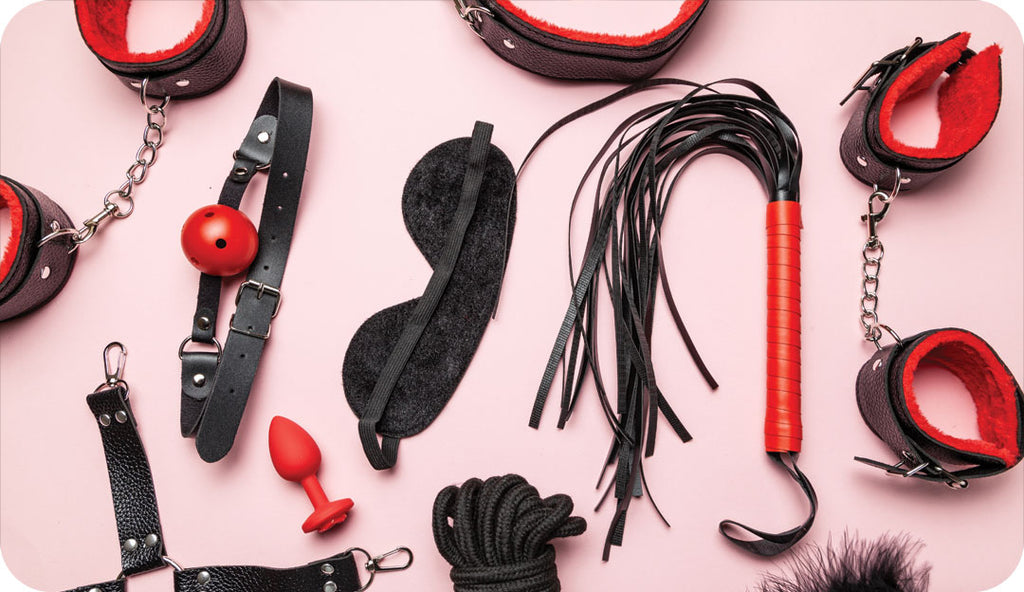Consent has been a massive part of the conversation surrounding sex for a while. So pretty much everyone knows what it is and why it’s essential. Leading a fulfilling sex life and having the terrific, deeply satisfying sex people dream of is about more than perfecting your technique and building a well-rounded repertoire.
Great partnered sex involves two people (or more) who are 100 percent on board with everything happening on every level. And consent lies at the heart of that. But making sure your sex play is consensual is about more than getting a clear “yes” from a partner before moving ahead with something you want to try. It’s about making that person a part of the planning process from start to finish.
What Is Scene Negotiation?
Scene negotiation is a term that describes the conversation you and your partner need to have before engaging in a sex act such as BDSM, bondage play, or any other type of alternative sex play. It’s how you ensure you’re both on the same page before your play is underway.
Making sure you both know exactly what to expect before you play is crucial to getting your partner’s full consent to anything you might wind up doing. This is an ideal way to ensure up front that your play session is satisfying, fun, and exciting in all the right ways, as well.
What to Make Sure You Discuss
A great scene negotiation session successfully addresses the expectations of both parties involved. But it can be hard to think of absolutely everything you want to cover off the tops of your heads. What you include in your own session is up to you, but here are some great suggestions to start with. If you need to, you can each make a list to refer to throughout your negotiation session.
Individual Needs
Everyone has specific criteria they need to have met before they can feel safe in a particular situation or get what they’re hoping to get out of a play session. For example, do you need your partner to talk to you a certain way during domination to be comfortable? This is the time to bring it up. Encourage your partner to do the same.
Individual Wants
Here’s the point where you can each talk about your individual wish lists as far as what you’d like to happen. Maybe you want your partner to use a specific type of toy on you in a particular way of your choosing. Or perhaps you’d love to see them wearing a specific type of lingerie, shoe, or gear. This is the point where you talk about that.
Soft and Hard Limits
Contrary to popular belief, being sex-positive and open to exploring kink with a partner is not about a lack of limits. Literally everyone has sexual boundaries that need to be respected, as well as both soft and hard limits. Having a thorough discussion with your partner about all these things is crucial. To clarify, a hard limit is a clear-cut boundary that cannot be crossed under any circumstances. In contrast, a soft limit may be something a person has some reservations about but is potentially willing to explore under the right circumstances.
Personal Curiosities
BDSM, role-playing, and every other type of sex play represent a golden opportunity to explore things you might be curious about but perhaps haven’t actually explored in practice yet. To get more out of your play sessions, make sure you go over possible curiosities with your partner during scene negotiation.
Don’t Forget Your Safewords
All scene negotiation sessions should include a discussion about safewords. As you may already be aware, a safeword is a previously agreed-upon word or phrase that either party can say at any point during a play session to shut the action down immediately, no questions asked.
If your partner says the safeword, that’s your undeniable indicator that a boundary has been reached or potentially breached in a way they’re uncomfortable with. It should always be taken as a clear-cut “no,” regardless of the rest of the circumstances involved.
Your safeword can be anything you like. However, to avoid confusion, it should be incredibly unlikely to be accidentally said in any play scenario – one reason why people choose a safeword instead of simply saying “no” or telling their partner to stop. Doing so allows for play that includes “no,” “stop,” and other similar words to become part of the fun if you want.
And remember, great sex play involves thorough aftercare, as well. Check in with one another after you’re done to get a good read on how each of you felt about what just happened. Discussed what you liked and didn’t like, as well as what you’d do differently next time. Then use what you learned to make your next experience even better.






















